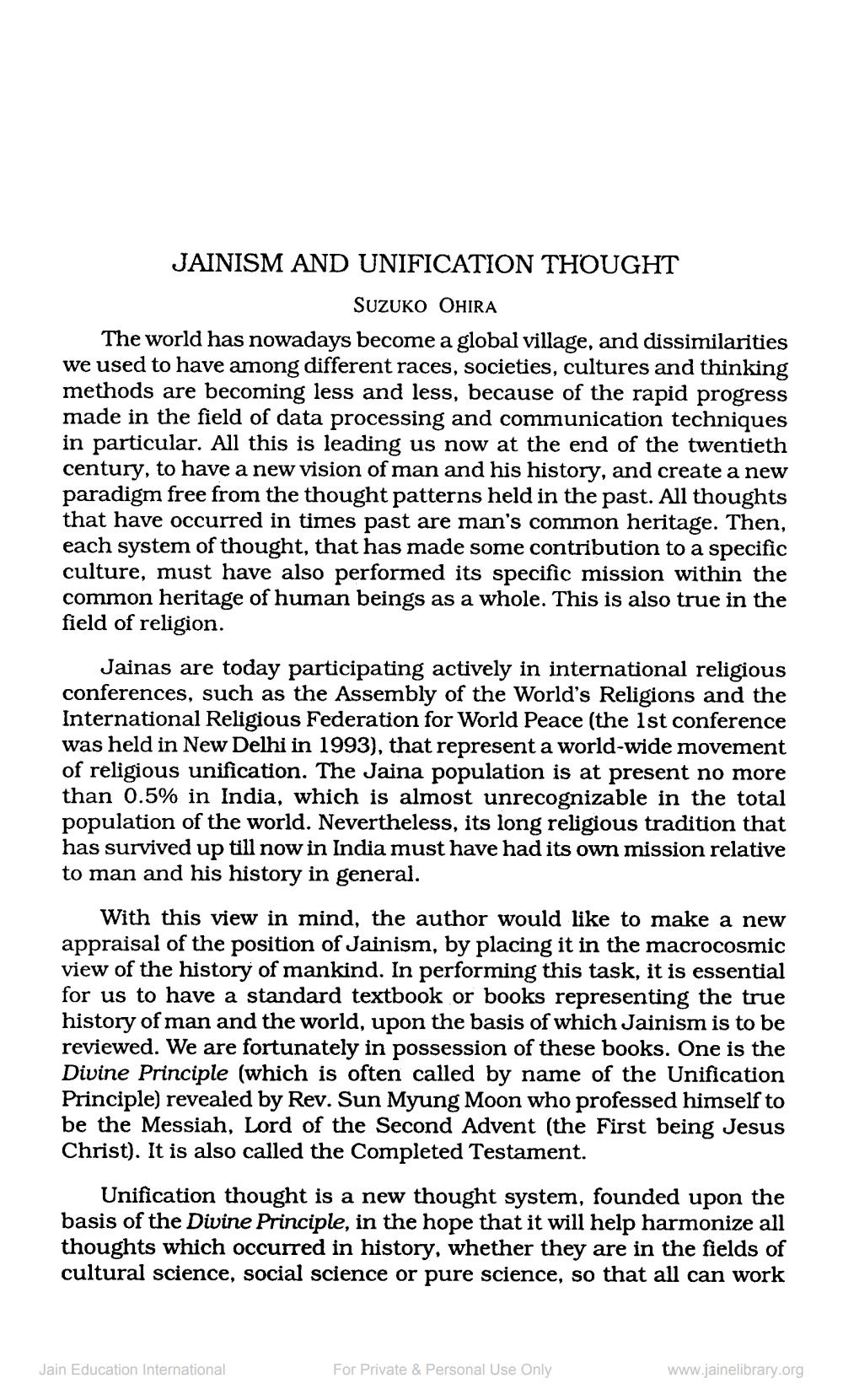________________
JAINISM AND UNIFICATION THOUGHT
SUZUKO OHIRA
The world has nowadays become a global village, and dissimilarities we used to have among different races, societies, cultures and thinking methods are becoming less and less, because of the rapid progress made in the field of data processing and communication techniques in particular. All this is leading us now at the end of the twentieth century, to have a new vision of man and his history, and create a new paradigm free from the thought patterns held in the past. All thoughts that have occurred in times past are man's common heritage. Then, each system of thought, that has made some contribution to a specific culture, must have also performed its specific mission within the common heritage of human beings as a whole. This is also true in the field of religion.
Jainas are today participating actively in international religious conferences, such as the Assembly of the World's Religions and the International Religious Federation for World Peace (the 1st conference was held in New Delhi in 1993), that represent a world-wide movement of religious unification. The Jaina population is at present no more than 0.5% in India, which is almost unrecognizable in the total population of the world. Nevertheless, its long religious tradition that has survived up till now in India must have had its own mission relative to man and his history in general.
With this view in mind, the author would like to make a new appraisal of the position of Jainism, by placing it in the macrocosmic view of the history of mankind. In performing this task, it is essential for us to have a standard textbook or books representing the true history of man and the world, upon the basis of which Jainism is to be reviewed. We are fortunately in possession of these books. One is the Divine Principle (which is often called by name of the Unification Principle) revealed by Rev. Sun Myung Moon who professed himself to be the Messiah, Lord of the Second Advent (the First being Jesus Christ). It is also called the Completed Testament.
Unification thought is a new thought system, founded upon the basis of the Divine Principle, in the hope that it will help harmonize all thoughts which occurred in history, whether they are in the fields of cultural science, social science or pure science, so that all can work
Jain Education International
For Private & Personal Use Only
www.jainelibrary.org




